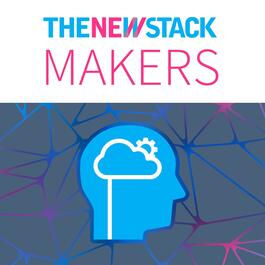
The New Stack Podcast
The New Stack Podcast is all about the developers, software engineers and operations people who build at-scale architectures that change the way we develop and deploy software. For more content from The New Stack, subscribe on YouTube at: https://www.youtube.com/c/TheNewStack
Show episodes
Ari Zilka, founder of MyDecisive.ai and former Hortonworks CPO, argues that most observability vendors now offer essentially identical, reactive dashboards that highlight problems only after systems are already broken. After speaking with all 23 observability vendors at KubeCon + CloudNativeCon North America 2025, Zilk
Former GitHub CEO Thomas Dohmke’s claim that AI-based development requires progressive delivery frames a conversation between analyst James Governor and The New Stack’s Alex Williams about why modern release practices matter more than ever. Governor argues that AI systems behave unpredictably in production: models can
Most enterprises today run workloads across multiple IT infrastructures rather than a single platform, creating significant operational challenges. According to Nutanix CTO Deepak Goel, organizations face three major hurdles: managing operational complexity amid a shortage of cloud-native skills, migrating legacy virtu
GPUs dominate today’s AI landscape, but Google argues they are not necessary for every workload. As AI adoption has grown, customers have increasingly demanded compute options that deliver high performance with lower cost and power consumption. Drawing on its long history of custom silicon, Google introduced Axion CPUs
Enterprises are racing to deploy AI services, but the teams responsible for running them in production are seeing familiar problems reemerge—most notably, silos between data scientists and operations teams, reminiscent of the old DevOps divide. In a discussion recorded at AWS re:Invent 2025, IBM’s Thanos Matzanas and M
Rob Whiteley, CEO of Coder, argues that the biggest winners in today’s AI boom resemble the “picks and shovels” sellers of the California Gold Rush: companies that provide tools enabling others to build with AI. Speaking onThe New Stack Makersat AWS re:Invent, Whiteley described the current AI moment as the fastest-mov
